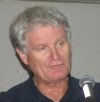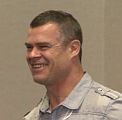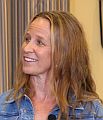WATER SUSTAINABILITY ACTION PLAN: The Partnership’s Water-Centric Planning community-of-interest provides a legacy record for preserving stories about “Living Water Smart, British Columbia’s Water Plan” and adapting to a changing climate

“The partnership umbrella provided by the Water Sustainability Action Plan has allowed the Province to leverage partnerships to greatly enhance the profile and resulting impact of Living Water Smart. In effect, the Action Plan partners are functioning as the on-the-ground Living Water Smart implementation arm with local government, allowing my team to focus on legislative reform. Living Water Smart comprises 45 commitments grouped into five themes. The Action Plan has played a key delivery role in two of the five,” stated Lynn Kriwoken.
WATER SUSTAINABILITY ACTION PLAN: Metro Vancouver guidance document for a “Watershed / Landscape-based Approach to Community Planning” is the genesis for an actionable vision for water-centric planning in British Columbia

Published in March 2002 by the Greater Vancouver Regional District, the “Watershed / Landscape-Based Approach to Community Planning” was developed by an interdisciplinary working group and is the genesis of “water-centric planning”. “An important message is that planning and implementation involves cooperation among all orders of government as well as the non-government and private sectors,” stated Erik Karlsen.
WATER SUSTAINABILITY ACTION PLAN: Historical context for evolving from a community-of-interest on the waterbucket.ca website to implement and mainstream “Water-Centric Planning” in British Columbia

“Originally, this COI was to be called Watershed-Based Planning for consistency with the community planning element of the Water Sustainability Action Plan. However, federal and provincial funding enabled us to broaden the scope of the COI to encompass a spectrum of perspectives, ranging from provincial watershed planning to local government community planning. This expanded scope is an ambitious undertaking. We are excited by the challenges that integration of perspectives involves,” stated Robyn Wark.
LIVING WATER SMART IN BRITISH COLUMBIA: “Look at all the really important science that we were able to produce. There is a lot to be proud of in terms of all that material that we produced for the region, the network and the country,” stated Richard Boase, career environmental champion within local government in British Columbia

“When I look back at our history, I think wow, how did we do so much applied research. We had a need and Hans Schreier had grad students who were interested in doing the research. Win-win,” stated Richard Boase. “At a critical moment, members of the Partnership team would have an idea around a research theme that supported our hypotheses. And as often happened, I was the arm that had the energy and willingness to take on the research, apply new science in North Vancouver, and get the work done.”
TURNING THE TIDE FOR STREAM SURVIVAL: “The Partnership for Water Sustainability created the methodology for EAP, the Ecological Accounting Process. Now we are in a 3-year transition strategy to embed EAP at Vancouver Island University,” stated Anna Lawrence, Project Coordinator, Mount Arrowsmith Biosphere Region Research Institute at VIU

“There are lots of layers to this partnership and projects. Not only is there a transition strategy, but there are also the partnerships with the local governments plus integrating other grad students, There are so many different parts to EAP. And with each part you can go down a distinct pathway that helps local governments. And that is what Sam Gerrand has done in such a holistic way with his master’s thesis which moves EAP from a stream-by-stream approach to a regional scale,” stated Anna Lawrence.
LIVING WATER SMART IN BRITISH COLUMBIA: “A measure of the consequence of human settlement is the Riparian Deficit. It is the natural systems equivalent of the well-known Infrastructure Deficit for engineered systems,” stated Tim Pringle, Chair of the Ecological Accounting Process initiative

“The Riparian Deficit applies to the regulated setback which is the interface between land and a stream,” stated Tim Pringle. “EAP is a land use perspective. EAP provides local governments with the real numbers they need to deliver outcomes: What is the number for the line item in a local government annual budget for community investment in maintenance and management, that is M&M, of streams? Streams need a place to be. If we cannot get our heads around that, we are not going to keep our streams. When something does not get measured, it does not get managed,” stated Tim Pringle
LIVING WATER SMART IN BRITISH COLUMBIA: “In the urban environment, we cannot bring back the watersheds that were here historically. But we can do things to retain and improve natural areas and the quality of receiving waters,” states Hugh Fraser, former Deputy Director of Engineering, City of Delta

Hugh Fraser is a green infrastructure pioneer in the Metro Vancouver region. In the early 2000s, he was a leading voice when green infrastructure was in its infancy and was a component of the region’s Liquid Waste Management Plan. Delta’s rain garden program in road rights-of-way began in 2005 as a demonstration application to show how to achieve desired watershed health outcomes. “The program is now in Decade Three. Shared responsibility and intergenerational commitment are foundation pieces for enduring success,” stated Hugh Fraser.
STORY BEHIND BRITISH COLUMBIA’S FISH PROTECTION ACT (1997): “Erik Karlsen was the secret sauce who convened the fantastic streamside regulation discussions that created collegiality between municipalities,” recalls Susan Haid, career environmental and urban planner in BC local government, and adjunct assistant professor at the University of BC

“In late 1996, in came Erik Karlsen from the Province as the spokesperson for the first Fish Protection Act. He convened discussions with environmental, engineering and planning staff. Those were such fantastic discussions. There was a really good alignment and call to action on making streamside regulation work. It was a major advancement but a lot of stress as well. Streamside regulation was being portrayed as a huge land grab. There was a lot of back and forth to move from something that was site-specific to more of a hardline edict with the province,” stated Susan Haid.
LIVING WATER SMART IN BRITISH COLUMBIA: “Steve Jobs described creativity as ‘connecting dots’ and argued that creative people were able to connect experiences they have had and synthesize new things,” stated Kim Stephens, Partnership for Water Sustainability in BC

“A terrific Steve Jobs quote encapsulates why processes and outcomes go awry when there is a ‘don’t know, don’t care’ mindset about the history behind the WHY and HOW of policy frameworks that shape urban design,” stated Kim Stephens. “Steve Jobs explained that dot-connectors have had more experiences or they have thought more about their experiences than other people. Unfortunately, he added, a lot of people don’t have enough dots to connect, and they end up with very linear solutions without a broad perspective on the problem.”
LIVING WATER SMART IN BRITISH COLUMBIA: “Mike Wei, a former Deputy Comptroller of Water Rights, is passionate about water. He cares, he really cares about getting it right at a pivotal moment in BC history,” stated Kim Stephens, Executive Director of the Partnership for Water Sustainability

“Nominally the story is that Mike Wei went to Ottawa to talk about groundwater. But that is not the story behind the story. An invitation to appear before a House of Commons Standing Committee gave Mike Wei a reason to step back, see things from afar, and describe what a path forward for groundwater management could look like in BC. Getting it right means understanding the historical context for surface and groundwater management in this province. In the story behind the story, Mike Wei presents broad brush solutions in clear terms,” stated Kim Stephens.
PATH FORWARD FOR GROUNDWATER IN BRITISH COLUMBIA: “If we have to wait for the cycle of provincial priorities to come back to water, the wait could be awhile for a water champion to show up at the political level,” states Mike Wei, former Deputy Comptroller of Water Rights

Mike Wei’s over-arching message is that water invariably gets bumped by other priorities. “The lesson from BC is that the historical regulatory context cannot be ignored in regulatory design. The science forward approach which some academics advocate is a good idea but has practical challenges. Unless you have specific legislation that actually tells you what the important requirements are, it is very hard to go forward. It can be challenging to do the science. One of the challenges with science forward is if it is not legislated, it is not a priority for government,” stated Mike Wei.
LIVING WATER SMART IN BRITISH COLUMBIA: “The Marine Science Thesis Course was my favourite. A big part of that enjoyment was just because the students were so excited to learn, and I was able to help them learn,” stated Zoe Norcross-Nu’u, Comox Lake Watershed Protection Coordinator

Zoe’s academic career had three distinct phases. Insights gained along the way serve Zoe well in her current watershed coordinator role. In her first three years, Zoe taught those who just wanted to take an easy science course. Seeking an opportunity to create a more meaningful learning opportunity, she developed a course called Topics in Sustainability, which was a speaker series. Through that experience, she learned the importance of finding the silver linings. A thesis class was the rewarding phase of her academic career when Zoe mentored passionate young professionals.
SCIENCE OF FORESTS AND FLOODS IN BRITISH COLUMBIA: “A forest’s influence on flooding stems from the many random or ‘chancy’ features in a watershed,” stated UBC forestry professor Younes Alila in calling for a rethink of forestry practices and policy

“If we continue to mischaracterize (extremes), and if we continue to manage the forest and disturbance levels as if we were doing fine, we’re going to take the system further and further out of anything that is protective,” stated Dr. Younes Alila. And as climate extremes become more frequent and severe, he says, assessing the risks incorrectly could lead to greater damages and losses of life. He says frequency is the “lost dimension” in B.C. forest hydrology. It’s crucial to consider frequency because dikes and bridges can fail when battered by peak flows that are happening more often.


